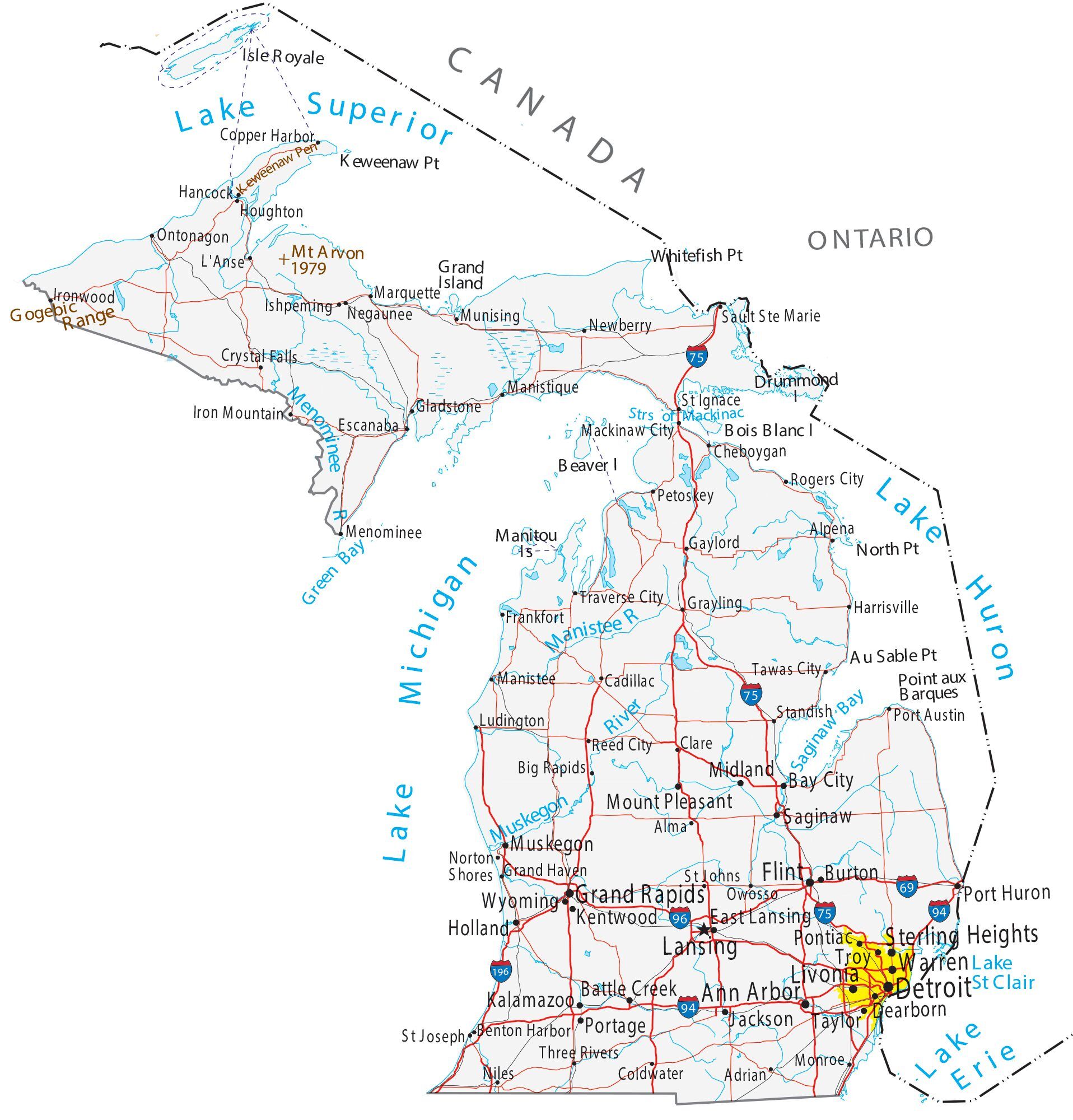Understanding septic tank laws is crucial for Michigan residents who rely on on-site wastewater systems. These regulations ensure public health, environmental protection, and proper wastewater disposal. The Michigan Health Department and local agencies play key roles in enforcing these laws and providing guidance for septic system installation, maintenance, and compliance.
- State-Specific Regulations for Septic Systems in Michigan
- Legal Compliance Information
- Costs Related to Septic Systems in Michigan
- Local Resources and Contact Information
- Supportive Resources for Septic System Owners
- FAQs About Michigan Septic Tank Laws
State-Specific Regulations for Septic Systems in Michigan
Installation Permits
Michigan requires homeowners to obtain a permit before installing or modifying a septic system. These permits are typically issued by local health departments. The cost of a permit varies by county, ranging from $200 to $500. Applicants must provide site plans, soil evaluations, and other documentation to ensure compliance with Michigan septic permits.
Septic Tank Size and Placement
Michigan septic tank regulations mandate that tank size depends on household size and wastewater volume. For a typical three-bedroom home, a 1,000-gallon tank is standard. Drain fields must be placed at least 50 feet from water wells and 10 feet from property lines. Proper placement helps prevent groundwater contamination and ensures efficient wastewater treatment.
Wastewater Disposal Rules
Michigan on-site wastewater laws regulate how wastewater is treated and disposed of to protect the environment. Septic systems must meet specific design criteria to prevent untreated wastewater from seeping into lakes, rivers, or groundwater. Alternative systems, such as mound systems, may be required in areas with high water tables or unsuitable soil.
Maintenance and Pumping
Routine maintenance is essential to keep septic systems functioning properly. The Michigan Health Department recommends pumping septic tanks every 3 to 5 years, depending on usage. Regular inspections are also encouraged to identify potential issues before they become costly problems.
Legal Compliance Information
Potential Fines and Penalties
Failure to comply with Michigan septic tank laws can result in significant fines. Homeowners may face penalties for operating a system without a permit, failing to maintain their system, or causing environmental contamination. Fines range from $500 to $10,000, depending on the severity of the violation.
Environmental Protections
Michigan wastewater management laws prioritize environmental conservation. Regulations address the protection of wetlands, groundwater, and surface water. Local health departments enforce these protections by conducting inspections and ensuring compliance with state guidelines.
Costs Related to Septic Systems in Michigan
Permit Fees
Permit fees for septic system installation or repair in Michigan typically range from $200 to $500. Fees may vary based on location and system complexity.
Pumping Costs
Septic tank pumping in Michigan costs between $200 and $400 per service, depending on tank size and accessibility. Regular pumping prevents system failure and prolongs the life of the system.
Installation Estimates
Installing a new septic system in Michigan can cost between $5,000 and $15,000. The total cost depends on the type of system, soil conditions, and property size. Advanced systems, such as those required for challenging sites, can cost significantly more.
Local Resources and Contact Information
Michigan residents can access valuable resources to ensure compliance with septic tank regulations:
- Michigan Department of Environment, Great Lakes, and Energy (EGLE): Oversees wastewater management and provides regulatory guidance. Visit their website for more information.
- Local Health Departments: Contact your county health department for permits, inspections, and maintenance advice.
- Certified Septic Service Providers: Search online directories for state-certified professionals who offer installation, pumping, and repair services.
Where to File a Complaint
Michigan Department of Environmental Quality
Drinking Water and Radiological Protection Division
P. O. Box 30630
Lansing, MI 48909
Supportive Resources for Septic System Owners
Homeowners can explore the following resources for additional support:
- Michigan Health Department Guidelines: Access comprehensive guides on septic system maintenance and regulations.
- Trusted Septic Service Providers: Use certified professionals for reliable services.
- Downloadable Guides and Infographics: Many government websites offer helpful materials to educate residents about Michigan wastewater management laws.
FAQs About Michigan Septic Tank Laws
What are the most common septic tank violations under Michigan septic tank laws?
Common violations include not obtaining the required permits, neglecting routine maintenance, improper wastewater disposal, and violating Michigan health department guidelines. Adherence to MI septic tank regulations and Michigan wastewater management laws is crucial to avoid penalties. Learn more at Michigan EGLE Septic Information.
How often should a septic tank be pumped in Michigan according to Michigan health department guidelines?
It is generally recommended to pump your septic tank every 3 to 5 years in Michigan. This frequency depends on household size, water consumption, and system usage. Regular pumping ensures your system stays compliant with Michigan on-site wastewater laws and prevents costly system backups. Visit our Septic Tank Maintenance Guide for more details.
Do I need a permit to install a new septic system in Michigan under Michigan septic permits?
Yes, obtaining a Michigan septic permit is mandatory to meet health department guidelines and environmental standards. The permit ensures your installation complies with Michigan wastewater management laws and on-site wastewater regulations. Check your county-specific requirements here: Michigan Health Department Permits.
Which agencies enforce MI septic tank regulations and Michigan wastewater management laws?
Local health departments and the Michigan Department of Environment, Great Lakes, and Energy (EGLE) are responsible for enforcing Michigan septic tank laws and on-site wastewater regulations. For guidance and assistance, contact EGLE directly: Contact EGLE.
Are there financial assistance programs in Michigan for septic system upgrades?
Yes, some counties in Michigan offer grants or low-interest loans for homeowners looking to upgrade their failing septic systems. These financial programs help ensure compliance with Michigan health department septic regulations and Michigan wastewater management laws. Reach out to your local health department or visit USDA Rural Development Grants for more information.
What steps should I take if my septic system fails under Michigan on-site wastewater laws?
If your system fails, contact a certified septic professional immediately. You must also inform your local health department as per Michigan wastewater management laws. For emergency guidance and advice, visit Michigan Septic Failure Response.
Can I use an alternative septic system in Michigan, according to Michigan health department guidelines?
Yes, alternative septic systems, such as mound or aerobic treatment units, are allowed in areas with unsuitable soil conditions or high water tables. These systems must comply with Michigan on-site wastewater laws and health department regulations to ensure proper wastewater treatment and environmental safety. Discover more about these systems in our Alternative Septic System Info.
What are the key components of Michigan wastewater management laws that homeowners should follow?
Homeowners should be aware of the key elements of Michigan wastewater management laws, including septic system installation, maintenance requirements, permit applications, environmental protection standards, and discharge regulations. Compliance ensures your system is efficient and environmentally sustainable. Refer to Michigan EGLE for comprehensive state guidelines.
Directory | South Carolina Septic Service Providers : Best Professionals
Installing a Septic Tank: Legal Steps
Septic Tank Materials: Concrete, Plastic, or Fiberglass – A Complete Comparison
Do You Need a Permit to Install a Septic Tank?
Monthly Septic Maintenance Plans
Safe Chemicals for DIY Septic Cleaning






